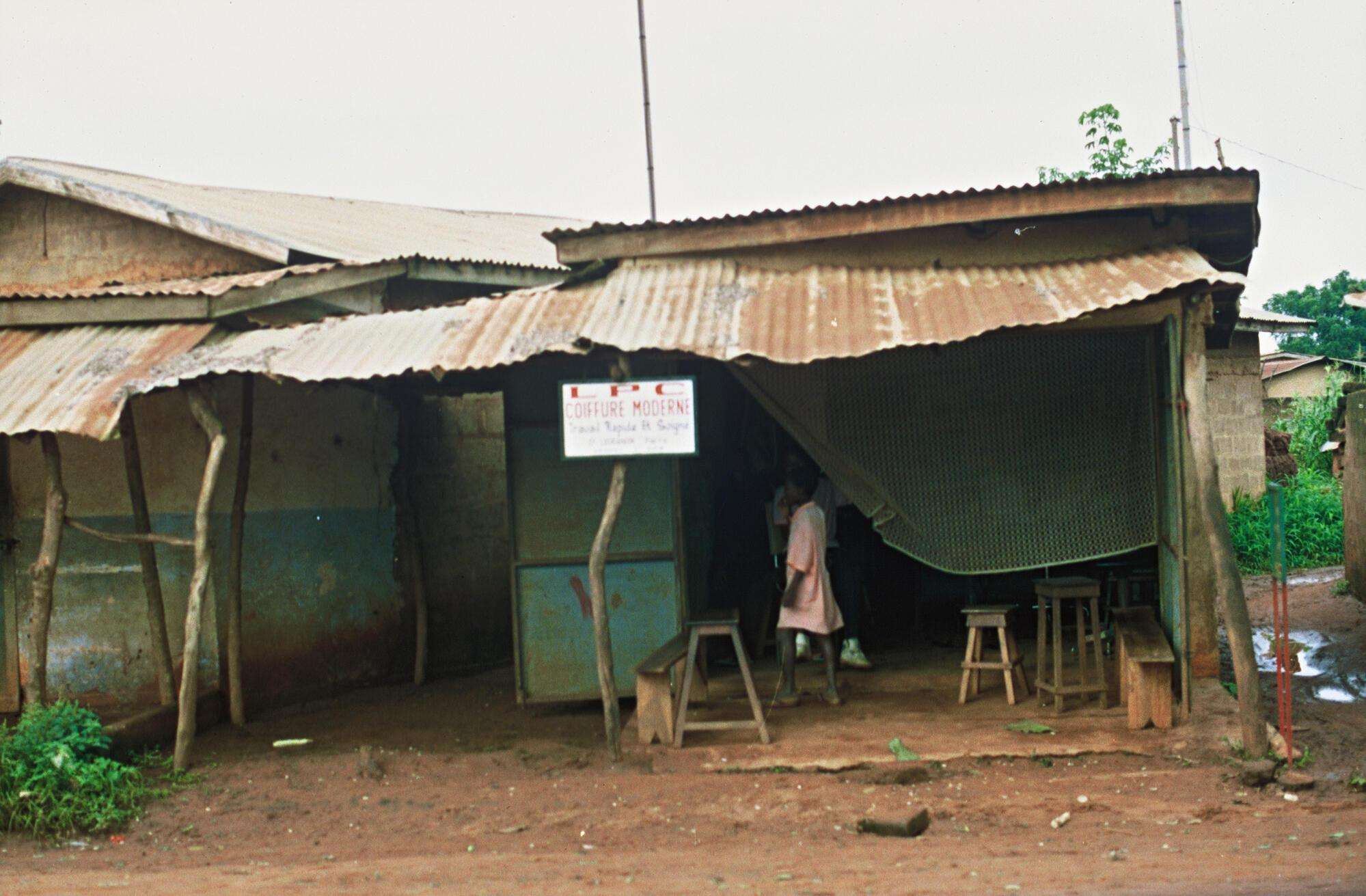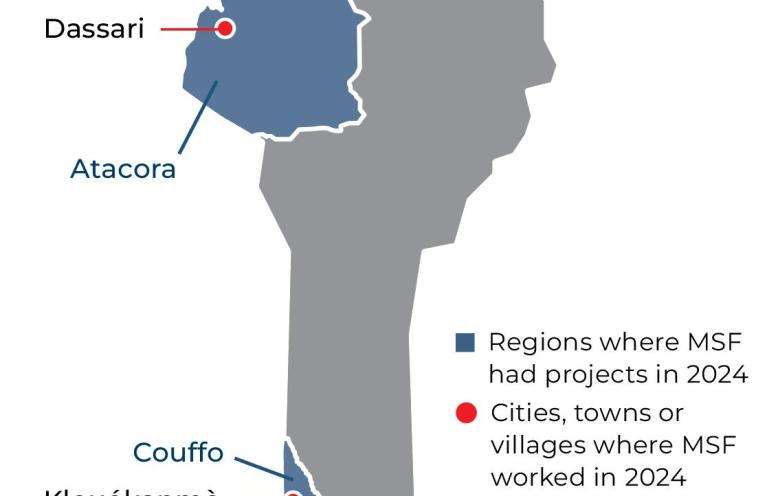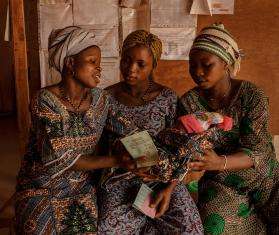*Data from MSF International Activity Report 2024

Benin 1990 © MSF
Benin
MSF returned to Benin in 2022 to address women’s health needs.
What's happening in Benin
Since 2023, MSF has been implementing a project in Atacora department in northern Benin to strengthen the skills of health staff and improve medical facilities, with a focus on treating malaria and responding to emergencies.
How we are helping in Benin
MSF teams support the Tanguiéta-Matéri-Cobly health zone—specifically the health center in Dassari, near the border with Burkina Faso—by providing malaria treatment and nutritional support for pregnant women and children under 5. In October, we extended these activities to the health centers in Matéri, Cobly, and Pétinga. This region of Benin is subject to recurrent attacks by non-state armed groups, as well as violent clashes between farmers and herders, resulting in loss of life and displacement. In 2024, we treated patients with violence-related injuries and supported displaced people from Gouandé and Koutoucondica by distributing essential items such as cooking equipment and hygiene kits.
In the south of the country, the sexual and reproductive health care project we have been running since 2022 in Klouékanmè-Toviklin-Lalo health zone continues to improve access to family planning services, safe abortion care, and treatment for sexual violence. In 2024, we also supported the Couffo National Blood Transfusion Authority by donating an Elisa chain, a tool used in blood tests, and setting up voluntary blood donor committees, with the aim of reducing maternal and neonatal deaths.
In addition, we launched emergency responses to assist people affected by floods in Lalo and Karimama, and by cholera epidemics in Adjahonmè and Abomey-Calavi.

How we're helping
41,200
Outpatient consultations
16,700
Malaria cases treated
4,350
Births assisted
More news and stories
Learn about MSF’s journalistic roots and our commitment to bear witness and speak out about the plight of the people we treat.
Learn about MSF’s journalistic roots and our commitment to bear witness and speak out about the plight of the people we treat.




